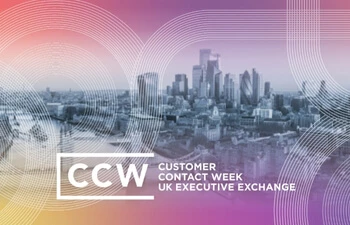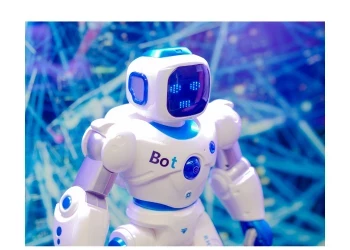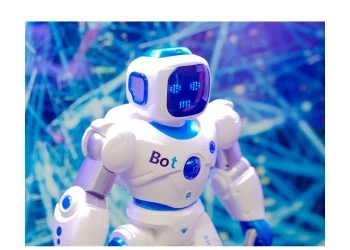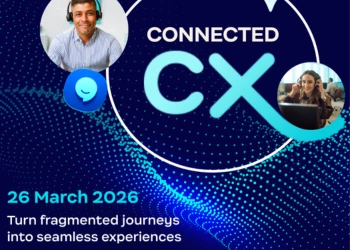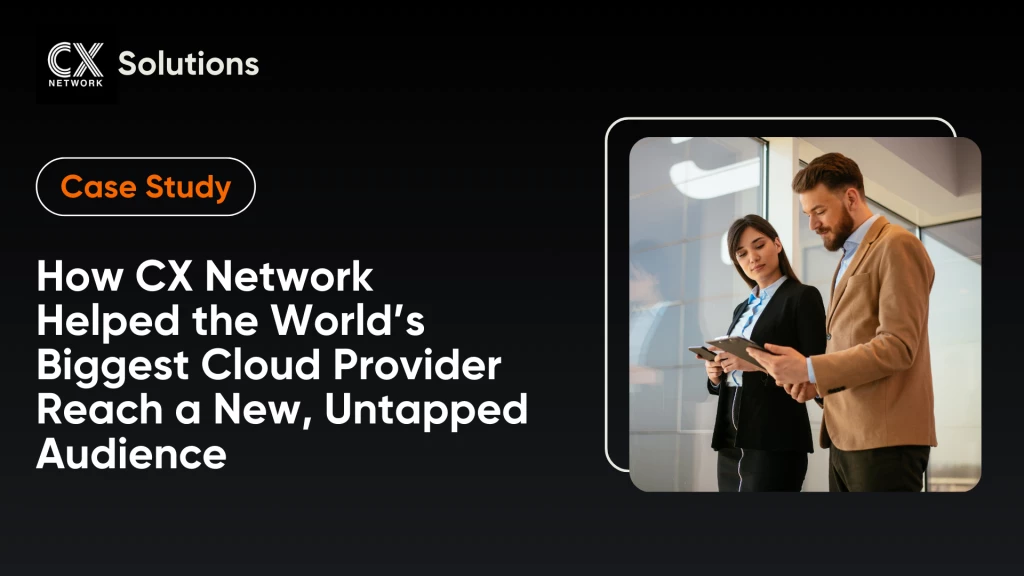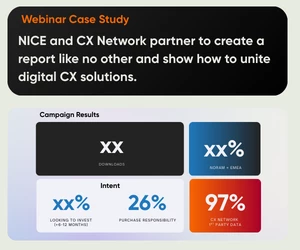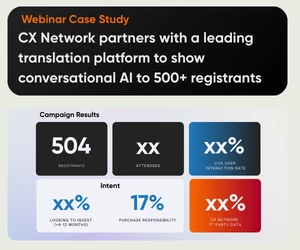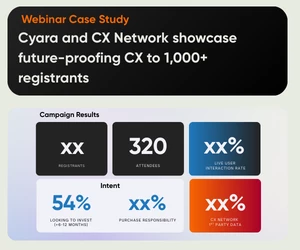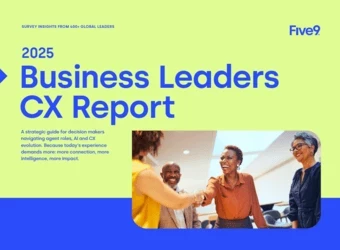Comcast: ‘We’re innovating on the experience for our customers’
Add bookmarkIn this week’s CX Network podcast theatre interview, the Vice President Customer Assurance for Comcast discusses innovation as a driver of process excellence and customer experience
EPISODE OVERVIEW:
Dana Wilson, Vice President Customer Assurance for Comcast, joins host Seth Adler in CX Network’s podcast theatre this week. She shares that very early on in her life she had a love of math science and engineering. She went to Drexel University, majored in chemical engineering and graduated, and became a process engineer at Philadelphia Gas Works. And it was there that she realised that in any new situation you have to become a student.
Wilson seeks to educate herself before doing what’s next. After working as a chemical engineer at Dow, she became a six sigma black belt where she found a way to bridge the technical acumen she had while developing leadership skills. After running process improvement for the City of Philadelphia, she worked on the Olympics for Comcast – eventually landing in customer experience.
LISTEN NOW:
TRANSCRIPT:
Seth Adler: From Comcast, Dana Wilson. First some supporters to thank, and thank you for listening.
This episode is supported by CX Network. CX Network provides expert commentary tools and resources developed by customer experience professionals and industry insiders. With a growing membership and global portfolio of events, CX Network ensures you keep your finger on the pulse by delivering practical and strategic advice to help achieve your business goals. Wherever you are on your customer strategy journey, join the CX Network's global community today. Go to cxnetwork.com for more.
This episode is also supported by the Chief Customer Officer Exchange. CCOE discusses approaches on driving a profitable customer strategy at all levels of the enterprise. Join the only event focused on bringing together innovative cross-industry chief customer officers November 5-7 in Miami, Florida. Benchmark on improving customer experience, establishing customer-centric strategies, and producing more valuable customer insights, go to ccoexchange.iqpc.com for more.
She shares that very early on in her life she had a love of math science and engineering. She went to Drexel University, majored in chemical engineering and graduated, and became a process engineer at Philadelphia Gas Works. And it was there that she realised that in any new situation you have to become a student.
Wilson seeks to educate herself before doing what’s next. After working as a chemical engineer at Dow, she became a six sigma black belt where she found a way to bridge the technical acumen she had while developing leadership skills. After running process improvement for the City of Philadelphia, she worked on the Olympics for Comcast – eventually landing in customer experience.
Welcome to the CX Network on B2BIQ. I'm your host Seth Adler. Download episodes on www.cxnetwork.com or through our app in iTunes within the iTunes podcast app, in Google Player, or wherever you currently get your podcasts. Dana Wilson.
Dana Wilson: You're the boss?
Seth Adler: Well, I don't think so is my point. I'm getting a boss vibe from you is my point. Is that fair?
Dana Wilson: That is fair.
Seth Adler: That is fair. Is that why you smile so brightly because you know, deep down inside you know you're the boss, type of thing?
Dana Wilson: Yeah, pretty much. But you know, it never hurts to smile. Right?
Seth Adler: It never hurts to smile. It never hurts.
Dana Wilson: It's a healthy thing.
Seth Adler: It is a healthy thing. You're from Philadelphia.
Dana Wilson: I am from Philadelphia.
Seth Adler: And you're from Philadelphia.
Dana Wilson: No I am not from Philadelphia.
Seth Adler: Oh where are you from?
Dana Wilson: I'm from Baltimore.
Seth Adler: Baltimore, okay.
Dana Wilson: Yes.
Seth Adler: Aren't you supposed to say Bal-di-more? Aren't we supposed to roll over the T?
Dana Wilson: Bal-di-more.
Seth Adler: Bal-di-more. Right yeah.
Dana Wilson: Yeah.
Seth Adler: But you work for Comcast, which is definitely a Philadelphia company.
Dana Wilson: Yes. I've been in Philadelphia for 20 years.
Seth Adler: Oh for a long time.
Dana Wilson: Yeah.
Seth Adler: Did you go directly from Baltimore, excuse me, Bal-di-more to Philadelphia? Or no?
Dana Wilson: Yes, I did.
Seth Adler: You did.
Dana Wilson: Yes.
Seth Adler: So it's those two cities.
Dana Wilson: Those two cities.
Seth Adler: All right, how do they compare?
Dana Wilson: They're very similar. They're sister cities.
Seth Adler: Oh they are.
Dana Wilson: They are.
Seth Adler: Do they know that they're sister cities?
Dana Wilson: Yes, they do.
Seth Adler: Okay.
Dana Wilson: Most people do that I've run into.
Seth Adler: Oh sure. Yeah, but I'm from New York, so I'm ... You know.
Dana Wilson: Oh that's totally different.
Seth Adler: I'm ignorant, is the point. Blissfully ignorant.
Dana Wilson: Totally, you're in your own world.
Seth Adler: Absolutely, absolutely.
Dana Wilson: You're out there on your own island.
Seth Adler: Literally, I live on Manhattan. It's ridiculous. Yeah.
Dana Wilson: Yes.
Seth Adler: So they're sister cities.
Dana Wilson: They're very similar. Neighborhoods, it's a city of neighborhoods similar to Philadelphia, and I grew up in a neighborhood in West Baltimore.
Seth Adler: West Baltimore. I'm trying to think. The Preakness, right?
Dana Wilson: Yes. Yes.
Seth Adler: It's outside of the city.
Dana Wilson: No it's not.
Seth Adler: It's inside of the city.
Dana Wilson: It's inside of the city in the west part of the city.
Seth Adler: In the west part of the city, and I didn't go to The Preakness. My brother-in-law was getting his doctorate at Johns-Hopkins in neuroscience.
Dana Wilson: Wow.
Seth Adler: Yeah.
Dana Wilson: Smart.
Seth Adler: Sure.
Dana Wilson: Brilliant.
Seth Adler: Well, I mean, you gotta meet the guy. I'm kidding. Of course, he's very, very smart. And we're very, very happy to have him in the family. But I remember he transferred. The whole idea was we were gonna go to The Preakness, and then the guy that he was kind of in his lab ... He was in this guy's lab. He moved out to Irvine, and so we never got a chance to go to The Preakness.
Dana Wilson: Yes, The Preakness is the event to attend.
Seth Adler: It is. Now so for folks listening, they're probably thinking of Mint Juleps and hats and the Kentucky Derby. For me, I'm thinking about the Belmont Stakes because I've been there. Right? In New York City.
Dana Wilson: Right. Right.
Seth Adler: Sure. But The Preakness is the one in the middle.
Dana Wilson: Yes.
Seth Adler: This is the linchpin.
Dana Wilson: Yes.
Seth Adler: Right?
Dana Wilson: Yes.
Seth Adler: Of the ... What do they call it? The-
Dana Wilson: What is it? The triple ...
Seth Adler: Yeah, why are we blanking? The Triple Crown.
Dana Wilson: Crown. Yeah.
Seth Adler: Yeah. The linchpin of the Triple Crown. Right?
Dana Wilson: Yes.
Seth Adler: So describe the scene here at The Preakness.
Dana Wilson: Well The Preakness, I remember as a child, so it was just a big event. People would almost like tailgate around the stadium. And it's like crowds and crowds of people. Kind of like a fair, but my parents, they weren't necessarily into horse racing like that. So it would be more of the event outside of The Preakness rather than ... And I heard the inside was, you know, everybody had a great time just like any other horse race or thing like that.
Seth Adler: Or thing with thousands of people at it.
Dana Wilson: With thousands-
Seth Adler: Tens of thousands of people. Right?
Dana Wilson: Yeah, with lots of money betting on horses.
Seth Adler: It sounds like a fun experience.
Dana Wilson: Yeah.
Seth Adler: But there are very few people really, that are into horse racing. But every year, we do this whole same thing again.
Dana Wilson: Yes.
Seth Adler: Yeah. Okay fantastic. So when did you decide that you weren't going to be a jockey? Kidding. What were you into when you were a kid? Right? So you weren't into horse racing. What were you into?
Dana Wilson: I was into math, science, and engineering. I was in Baltimore and went to Baltimore Polytechnic where, and that was a school kind of like I guess they call the magnet schools now.
Seth Adler: Sure. Like a Bronx Science.
Dana Wilson: Yeah, I guess so.
Seth Adler: Right.
Dana Wilson: But it's totally Baltimore, like Baltimore Polytechnic.
Seth Adler: I was poking fun right there. I'm poking the bear is what I'm doing by continually making New York references.
Dana Wilson: I can tell. Yes, oh absolutely, and I will bring you back down south below the Mason Dixon each time.
Seth Adler: Exactly. Exactly. All right.
Dana Wilson: Yeah, so I went there, and I had a love for science and then engineering. So I left and graduated Poly and went to Drexel University in Chemical Engineering, so that's-
Seth Adler: That's Philadelphia.
Dana Wilson: That's Philadelphia.
Seth Adler: Right.
Dana Wilson: So that's how I got there.
Seth Adler: All right, so wait a second. When did science occur to you? Are your parents into that?
Dana Wilson: No.
Seth Adler: No. How is that possible? Right?
Dana Wilson: Yeah, well when you are inquisitive, I would call it, and you decide that you want to tinker and take things apart and want to know how things work, or when you like to cook, and you try to recreate your own Reese's Cups because you really wanted them, and your mom wouldn't buy you any. And you had peanut butter, and you had some Nestle chocolate chips, you learn the science behind making Reese's Cups. So you enjoy that as well. They probably were the most disgusting things, but that peaked my interest as really how things are made.
Seth Adler: Right.
Dana Wilson: And yes Barbie is out there, but I used to take my Barbie apart, so I could see how it worked, so that is how I got into the whole engineering thing.
Seth Adler: How thrilled were your parents when they saw this person trying to put stuff together, quite literally? You know what I mean?
Dana Wilson: My dad was totally thrilled because he was a contractor and a builder. Right? My mother on the other hand, wasn't so thrilled because they were things that we should keep nice like toys and not destroy them and be very destructive or go in the kitchen and burn chocolate. Then it smells up the whole house and has the fire alarm going off and all that good stuff. So yeah.
Seth Adler: Right. Yeah. So my girlfriend used to play with little matchbox cars because her dad used to literally build cars and is so inclined. So I am seeing the same type of interaction between the mother who was like I can't believe that this is what we're doing and the father who is thrilled. Right?
Dana Wilson: Yes, totally. So I never got in trouble with him.
Seth Adler: Right. Not at all. Well you would have never anyway because you're gonna be princess. I mean that's gonna be what it is with him. Right?
Dana Wilson: Totally.
Seth Adler: Only child?
Dana Wilson: No, I have a sister.
Seth Adler: But she's older.
Dana Wilson: She's older. I'm the baby.
Seth Adler: See? How did I know that?
Dana Wilson: I don't know.
Seth Adler: That's weird. So you went to Drexel for Chemical Engineering, did you say?
Dana Wilson: Chemical Engineering.
Seth Adler: What was the thought there? What was the job gonna be?
Dana Wilson: I wanted to essentially, just make things and see how they're made. So for me it wasn't like civil or more traditional engineering disciplines. I wanted the chemistry part, but I wanted to be an engineer. Back then, I was in 10th grade, and I didn't know that a chemical engineer existed until my chemistry teacher actually told me.
Seth Adler: Right.
Dana Wilson: And I said, "Oh that's cool." Then I looked up all the things and jobs that they could do, and I was super interested because you're in pharmaceutical industries, every industry you can think of has ... You know, if you're building a product, you can leverage a chemical engineer just about for anything.
Seth Adler: I can do what I want to do, plus it seems like I might be able to get paid well.
Dana Wilson: Oh yes. There is the money.
Seth Adler: Right? There you go. Right? Okay so you get the degree, and you graduated.
Dana Wilson: Yes, I did.
Seth Adler: Okay, and then did you keep going, or did you get out and get a job.
Dana Wilson: No, I got out and got a job. I am hands-on. I love to work, and I love money.
Seth Adler: Sure.
Dana Wilson: So I think it was time to get a job and not be a career student.
Seth Adler: Right.
Dana Wilson: No offense to those that choose that path.
Seth Adler: No, exactly.
Dana Wilson: But it was just my time to get out there and actually practice it.
Seth Adler: Who chose you, or who did you choose?
Dana Wilson: My first job was at the Philadelphia Gasworks, and I was a process engineer at a gas plant doing gas distribution.
Seth Adler: So you are loving life. Right?
Dana Wilson: Totally.
Seth Adler: Yeah.
Dana Wilson: I'm in hardhat, steel-toed shoes, nomex, yeah totally.
Seth Adler: And they're watching you come in, and they're turning around being like are we serious about this? Right?
Dana Wilson: Right. Right. Because average tenure was 18 years at the company. Here comes little me, and I have all these great ideas about how we can improve plant process.
Seth Adler: So when you realized that you were in a corporate structure that wasn't necessarily interested in everyone's feedback, how did you kind of learn new behavior? How did you learn new communication tactics to get what you wanted done?
Dana Wilson: You have to be a student first and foremost. So I say I didn't want to be a career student, and I have been a career student. In any situation, I've gone from industry to industry and each time you have to get in and humble yourself and learn from the people that are actually doing the job every single day. That's a lot of frontline folks. That's plant folks.
Wherever I go, I am talking to the experts to educate myself first. That relationship is what has carried the change that I had to invoke in whatever position that I'm in or whatever we're trying to do as a company to get it actually ignited and actually implement it.
Seth Adler: Seek first to change yourself, essentially.
Dana Wilson: Yes.
Seth Adler: Right? All right, so that's early days. So we'll move onto the next position. What was it?
Dana Wilson: That was a product engineer for adhesives and sealants for what was then Rohm and Haas Company, which is now Dow Chemical.
Seth Adler: All right, and so you were making stuff, so you're more thrilled.
Dana Wilson: I was making stuff, and I was in a lab too because I was a scale-up engineer, and what I was doing was taking essentially what our chemists were making in their small batch and actually scaling it to commercial. So I got the bench top synthesis experience and leveraging my plan experience to actually partner and build products. And I worked on painter's tape, so that was really cool because then you could see your product, and we made by product. Essentially intermediate products, so we would partner with the actual tape client, and then we made the adhesive for the tape. So I got to see the tape on the shelves.
Seth Adler: I gotcha. Huh. The part that matters is what you would give them.
Dana Wilson: Yes. And then they had the pay for it and all that good stuff.
Seth Adler: Right, sure. That's wonderful. Thanks, you're welcome.
Dana Wilson: All the pretty colors.
Seth Adler: Blue for some reason comes to mind as far as painter's tape.
Dana Wilson: Yes blue, purple now.
Seth Adler: It's all there.
Dana Wilson: It's all there.
Seth Adler: Yeah. All right, and then?
Dana Wilson: And then I decided ... Let's see. What happened? Oh I was married. You know I met a boy, got married, had a baby. Then I went back because I was traveling. My husband at the time actually had a job where he was a regional vice president, so he was gone a lot. And we had a very small child, so then I went back to the gas company.
Seth Adler: Oh you did?
Dana Wilson: For a second stint.
Seth Adler: Because that was easy.
Dana Wilson: Because it was easy to go back for the purposes of family. So I had to balance the work life. Right?
Seth Adler: Yes.
Dana Wilson: But still maintain a career, and that's where when I returned, I actually really got into Lean Six Sigma. They were going through a business transformation.
Seth Adler: Perfect.
Dana Wilson: And I was in the first group that got trained, first group of black belts for the company that got trained. And I was the first to finish my project.
Seth Adler: Of course you were. Right?
Dana Wilson: Yep. And returned a $200,000 cost savings back to them as well, so in that first project.
Seth Adler: Okay.
Dana Wilson: That was exciting and fun.
Seth Adler: Then you realized that that's what you were doing.
Dana Wilson: Yes.
Seth Adler: For the rest of the time.
Dana Wilson: For the rest of the time.
Seth Adler: Right?
Dana Wilson: I totally loved it.
Seth Adler: Yeah. Now how lucky are you that you had to be taken off of the front lines of doing stuff to make sure that you could improve process as you are doing now? Right?
Dana Wilson: Yes. I mean ideally, for my career, I always knew that that's what I wanted to do. I didn't want to be a principal engineer where I was always kind of always the smee. But I knew I wanted to get into management and actually leadership, so finding the way to bridge the technical acumen that I had, but also develop leadership skills.
Seth Adler: 200 grand just quickly, what did we find? What did we do?
Dana Wilson: It was a logistics project on how we got our tools and equipment out to our field operators to just install gas main. And people would literally stand in line. It was just a pure efficiency value chain project because they're standing in line for X number of minutes a day. You have multiple trucks. You have multiple teams of people just standing in line waiting for materials and tools for the day.
So we were easily able to get at least 200k just in savings for actually kitting and packaging and loading the trucks the night before with the overnight shift that you had. But it's not rocket science, but when you look at it, and it's a hundred year old utility, and things were done a certain way and policies and process, and it's unionized. We had a lot ahead of us to do the behavioral change.
Seth Adler: Yeah, how about, it's not rocket science, but it is manually launching a rocket. Right?
Dana Wilson: Yes.
Seth Adler: It's that hard to like literally push a rocket off the ground.
Dana Wilson: Yeah, yeah.
Seth Adler: You know, if you're talking about 200 year-old utility.
Dana Wilson: Yeah.
Seth Adler: All right, so this is a boy or a girl? The child?
Dana Wilson: That's a girl.
Seth Adler: That's a girl. Okay. And she was what age when you left the gas company?
Dana Wilson: When I left the gas company, she was about, I would say about six-ish. Five.
Seth Adler: Okay so my niece is six now, and she is way smarter than me. And also, very interested in a lot of things and really able to hold a conversation like my male friends who are 41.
Dana Wilson: Right.
Seth Adler: You know? She can run circles around us.
Dana Wilson: Yes.
Seth Adler: Is that what you were dealing with at the time?
Dana Wilson: That what I was dealing with at the time. I also decided at that time that I wanted to give back.
Seth Adler: Okay.
Dana Wilson: And I actually went into a position as an appointed official for the City of Philadelphia under Mayor Nutter, his first term.
Seth Adler: Get out of here.
Dana Wilson: So he's a previous mayor. It's his first term and doing process improvement for the city's-
Seth Adler: For the city.
Dana Wilson: Yeah for the city.
Seth Adler: What was he like to work for?
Dana Wilson: Great.
Seth Adler: Okay.
Dana Wilson: Great.
Seth Adler: And what was the process that we were improving?
Dana Wilson: A number of city processes.
Seth Adler: So what do you-
Dana Wilson: So cycle times to hire for fire, prison, and police. And looking at inefficiencies around things like health checks and screenings and things like that. People, you literally had to go to our health centers and not go to your primary care doctor and things like that.
Again, old policies, process, procedures that can actually save money, so that was millions of dollars in savings just in that one project, but there were many more. In addition to building almost like ... I would call it similar to like a bell and score card, but you actually have a forum, so there's Philly Stat was what it was called, and New York ... I'll give you a nod. Just a little one. Actually had that the previous mayor-
Seth Adler: Bloomberg.
Dana Wilson: Yeah.
Seth Adler: Yeah.
Dana Wilson: So you actually evaluate the efficiencies and the productivity and also metrics against the city services that are being delivered to its constituents in a forum. It was very public, very open. And Philadelphia adopted the same thing, so I worked on that as well.
Seth Adler: Right.
Dana Wilson: It was a great run.
Seth Adler: Is that why ... I've got family that's in South Jersey, so we are in Philadelphia because of that. I've noticed just a change. I mean how much of what you did there is the change that I'm seeing in the city itself?
Dana Wilson: It's a lot. So in that administration, it was heavily based on performance. He ran on a performance platform that you can run the city like a business, and he did that. So I think despite the fact that it's government, it's local government. They have all of the same issues of any other city, but actually, looking at how you render service and your constituency is your customer, and how you treat your customer was at the core of that administration. So I think you're seeing the fruits of that labor.
Seth Adler: And thank you.
Dana Wilson: You're welcome.
Seth Adler: So low hanging and otherwise. Right? As far as the fruits.
Dana Wilson: Yes. Oh absolutely. Some was a little smoothies [inaudible].
Seth Adler: All right, so you gave back. Thanks. Okay fantastic.
Dana Wilson: Yep.
Seth Adler: When did we get back into corporate America?
Dana Wilson: Then I went back in corporate America, the Accenture, so I actually worked as a consultant.
Seth Adler: Of course you did. And you did ... We're not gonna talk about that because you probably did that very well. And you probably got a lot of promotions, and you-
Dana Wilson: Actually, it was just a stint of success-
Seth Adler: Oh that's it.
Dana Wilson: Not even a year. And then I went to Comcast.
Seth Adler: Oh wait a second. I just feel like you would have been so good as a consultant.
Dana Wilson: I was so good that Comcast hired me.
Seth Adler: Oh they just like picked you ... They're like, "No, you don't do that anymore. You do this." So what did they hire you to do?
Dana Wilson: I worked in Comcast Interactive Media.
Seth Adler: Okay. Doing?
Dana Wilson: Doing web and back then it was our entertainment, web, and mobile development, but doing the actual PMO, so all of the project and road map deployment and delivery. That's where I started.
Seth Adler: And then?
Dana Wilson: So I got to work on the London Olympics. I got to work on-
Seth Adler: Oh you did?
Dana Wilson: Yes.
Seth Adler: Oh.
Dana Wilson: Across NBC, back then is when we first acquired NBC.
Seth Adler: Right.
Dana Wilson: And we had our first Olympics ever for the company, and being able to execute a product offering for our customers across all of our properties that we had digitally.
Seth Adler: I'm listening to your tone, and it's not telling me that we went from one size company to a gargantuan very different size company delivering very different services than we were delivering before. Why am I hearing that tone of like, yeah, well you know. It was like this little Philadelphia company. Then we got gargantuan, and then we did the London Olympics. Why are you brushing over this as though it's not a big deal?
Dana Wilson: Because every business you have the same or similar business problems to solve, and even with scale, you know, it just makes it that more fun.
Seth Adler: Okay.
Dana Wilson: But I think at its core, it's the work. It's the process. It is the improvements that you're making at scale that are really ... I guess I sound like I'm kind of brushing it over and smoothing it over. I think it's all the same type of problems that I'm solving each time.
So it's always a ... Maybe it's a new problem. Maybe, yes, it's a different industry, but at its core, it's around changing process, changing culture, changing behaviors to have business results. I think that's ... I love it. It's fun. It's what I'm passionate about.
Seth Adler: Yeah, and I know in process excellence, the brand doesn't matter.
Dana Wilson: Yes.
Seth Adler: The scale, your point is, also doesn't matter.
Dana Wilson: No. It doesn't because if you solve the problem, you apply it, you implement it, it goes to if it's one customer or one person to millions.
Seth Adler: All right, what do they have you doing now? What have we got going on?
Dana Wilson: Customer experience.
Seth Adler: All right, so now let's talk about this.
Dana Wilson: Yes.
Seth Adler: Why does that matter? And why was it ever uncoupled from process excellence? Why are these two things? Aren't they really one thing?
Dana Wilson: They are really one thing, and so for us, we've done great at innovating. So I spent a lot of my seven years, a good portion of it, in our technology and product development group delivering innovative experiences.
Seth Adler: Such as? We said the London Olympics, but what else?
Dana Wilson: Such as Sochi Olympics. For the first time ever, we live streamed content from Sochi onto our X-One set top box. So I was a part of the team that actually delivered that. In addition to running the war room operations for across our experience as well. Then after that, moved into customer experience with my leader today is the same guy I've been with since I was at Comcast and started there.
But you know, he got appointed to be our Chief Customer Experience Officer, and so in that, it comes full circle because I owned Process Excellence.
Seth Adler: Look at that.
Dana Wilson: So we are looking at customer centricity. We were doing that in product development and building products with customer at the core. But now we are really holistically, as a company, really, really going after changing our experience. We've innovated, and we've [inaudible], we'll say we are top of the market for our X-One product and all the innovation that we've put into that, into our voice remote and things like that. However, we also are innovating on the experience for our customers as well.
Seth Adler: Without asking you to kind of give away the farm here as far as what you're working on, focusing back then on the Olympics. What I noticed this last Olympics was that Olympic coverage, the whole thing had changed.
Now, I feel like I'm maybe not a customer, so I didn't know about the X-One streaming offering. I think most people that I saw commenting on the delivery also didn't know that you guys were doing that. How much, as we go into a next Olympics, is this whole thing gonna be completely different in your thoughts?
Dana Wilson: I think it'll be even more robust than it has been. So when we first started, we had two properties. We had the mobile app, and we had a website. Now we have this platform that's all IP based that actually you can DVR your recordings. We actually curate the content. We also now have our voice remote, so you can actually use that to get to the things you want to see as quickly as possible. So all of that is kind of coming together.
Also in live streaming video as well, they have content that isn't even broadcasted. So I think when you couple all of the things that we have and all the innovation that's occurred, you will see a much bigger push, and a lot of people actually talking about all of the ways they can watch the Olympics and get it wherever they are on what platform they want it on.
Seth Adler: So we gotcha.
Dana Wilson: Yep.
Seth Adler: Right? Dana's like, "We gotcha covered. Don't worry about it."
Dana Wilson: We gotcha covered. Totally gotcha covered.
Seth Adler: I feel like we should talk again.
Dana Wilson: Yes.
Seth Adler: But at this point, I want to ask you three final questions. I'll tell you what they are, and then I'll ask you them in order. What has most surprised you at work along the way? What has most surprised you in life? And on the soundtrack of your life, one track, one song that's gotta be on there, which I kind of can't wait for.
But first things first, what has most surprised you at work?
Dana Wilson: I think in a short period of time, how our entire company has really galvanized around the customer experience. You know, you're talking a company that now, we're talking scale, you know you have 80 plus thousand employees, and each one of the employees that work for us actually knows and embraces the fact that we are here to build a better customer experience three years in. And we've made such great strides in our experience that to move a big ship like that has been amazing.
Seth Adler: How do you know that it's not just lip service?
Dana Wilson: Because we've invested. We've invested.
Seth Adler: I'm saying from them, from the stakeholders, the internal stakeholders. How do you know it's not just them kind of-
Dana Wilson: No everybody's ... We're in budgets right now, so everybody's presentation is around the customer experience.
Seth Adler: Got it.
Dana Wilson: This is not lip service. The investments are being made, but people are talking differently. They are acknowledging process, which when we first started, people thought, oh okay well maybe we'll use our innovation and leverage tools and technology.
But everyone is saying, yeah, what's the process? We need to map this process. I think for me, hearing people talk differently about attacking the problem. They're being more creative. They are going gung-ho and to move fast and quickly. I think it's really, really been surprising but also invigorating.
Seth Adler: So if I'm a CX executive, I should hire a bunch of black belts, that's obvious. Beyond that, how did you kind of move this boulder of a rock from sitting still to rolling?
Dana Wilson: It's creative problem solving. I mean it's definitely some of the things we talked about earlier around building relationships, understanding the process as it stands today, sitting with the people that do it every day and literally plopping myself next to a call center agent or riding out on a truck roll with a technician. But understanding what the customer experience is as well as our employees, which is paramount.
Then being able to document that in a way that's compelling, so that others that have functional responsibility to help me move that boulder are also engaged and getting in the movement with me. So really having that level of influence because I can't own ... I'm not Mr. Roberts and own the entire company and everyone doesn't report to me.
Seth Adler: Right. Was that hyperbole though? Did you actually go on the truck?
Dana Wilson: Yeah. Yes. Absolutely. You can't do this work without doing that.
Seth Adler: There you go.
Dana Wilson: You have to be out there. You have to actually experience, touch the people that touch the people. Right? And actually listen and learn. I don't understand anyone who doesn't do that. You can't do this work well to me.
Seth Adler: You can't just see the truck leave.
Dana Wilson: No.
Seth Adler: You gotta be on the truck.
Dana Wilson: Yeah. You can't just see the metrics. Right? Because we can sit behind our desk and look at all the metrics and look at all the insights, but not really experience what our customers experience, and what our employees experience more importantly.
Seth Adler: Because if they're happy, the customer's happy.
Dana Wilson: Pretty much. And also, they need the right tools and the empowerment. Right? So you get to see that as well.
Seth Adler: What's most surprised you in life Dana?
Dana Wilson: How quickly things have moved for me. I think that has just been surprising. You know? When I sit here and have this conversation with you, and I talk about all the things I've done and places I've worked and moved here and there from job to job, industry to industry. I think that's pretty surprising to me because I'm a creature of habit, believe it or not.
Seth Adler: I don't believe that. That I don't believe.
Dana Wilson: And I do, I like new and exciting things, however, I like a steady state. So my steady state hasn't been quite steady.
Seth Adler: No it hasn't, and I'll tell you. I feel like you have a youthful face because when I was asking about those initial jobs, I was watching your eyes go back and trying to find wherever that information was.
Dana Wilson: Yes.
Seth Adler: So it's been a while is what we're saying.
Dana Wilson: It's been a while.
Seth Adler: There we go. On the soundtrack of your life, one track, one song that's gotta be on there.
Dana Wilson: Oh my goodness.
Seth Adler: Now, if songs are rolling, you know, if you're going through the Rolodex, and things come up, let them come out. It doesn't have to be the perfect song, and you can certainly list more than one.
Dana Wilson: I don't know. It's been wild. One that pops in my mind I think because actually being a minority, and actually being a woman, I think one of the songs that I do listen to is To Be Young, Gifted, and Black. That's originally by Nina Simone, but then by Donny Hathaway. So I think that one is the first one that pops to my head. Given our current environment, not to be political, but I think that one would be definitely one of the tracks in my theme song.
Seth Adler: That's an amazing song, and Nina Simone is ridiculous.
Dana Wilson: Yes.
Seth Adler: As far as emotion, so she's got such a deep voice.
Dana Wilson: Yes she does.
Seth Adler: And you would think to yourself with that deep voice, she's not gonna be able to explain to you the emotions that she is experiencing. That is certainly not the case. It is unbelievable how she's able to emote through that very, very deep voice.
Dana Wilson: Yes.
Seth Adler: She's a fascinating artist.
Dana Wilson: She totally is, and one of my favorites.
Seth Adler: There you go. Dana, this is a pleasure.
Dana Wilson: Thank you. It's a pleasure.
Seth Adler: And there you have Dana Wilson. At it's core, it's changing process, changing culture, changing behavior for business results. We're innovating on the experience for our customers. Very much appreciated Dana and her time, very much appreciate you and yours. Stay tuned.

